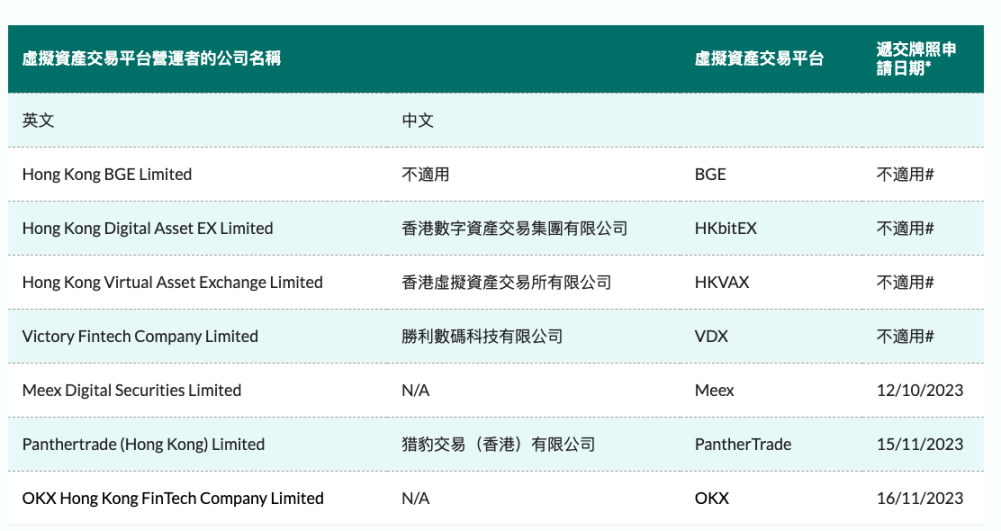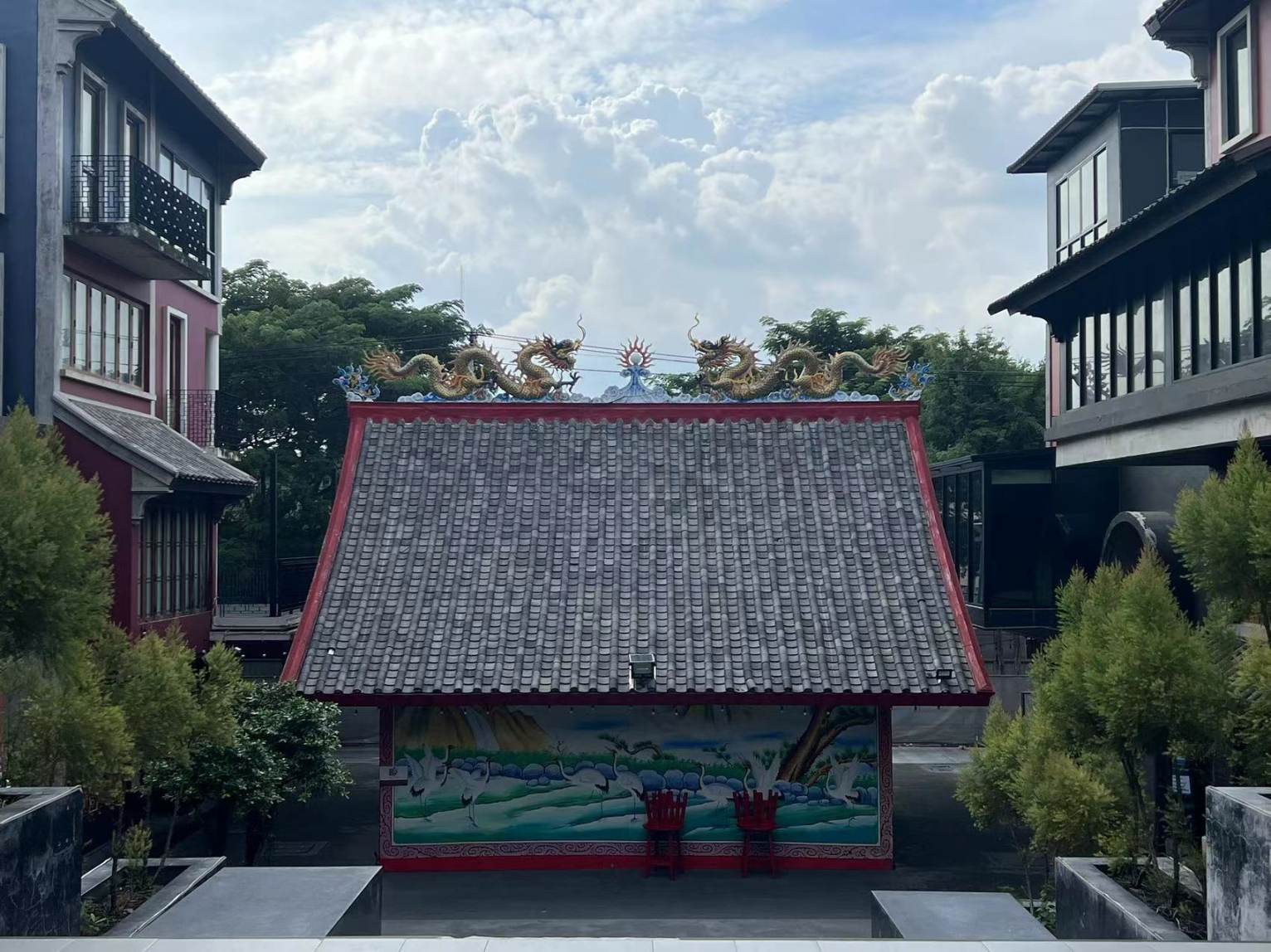When freedom takes root in the ancient and mysterious kingdom, uncovering the current development of Web3 in Thailand.
Author: angelilu, Foresight News
In April of this year, I went to Chiang Mai to visit Gafi and Sigrid, whom I had briefly met in Dali. They told me that I had missed the good weather, as April is the hottest and most hazy time in Thailand, hot and humid, and the sky turns gray due to straw burning. But in fact, other months in Thailand are very comfortable. Thailand is located in the southern part of the central peninsula, with a tropical monsoon climate. The year is divided into hot, rainy, and cool seasons, with an average annual temperature of 27°C, and April is the hottest. Fortunately, before leaving, I experienced the post-rain Chiang Mai, which was fresh and cool. Gafi said that this is the norm in Chiang Mai.
Of course, I went with doubts. Why are more and more crypto nomads moving to Thailand to travel or settle down? Bangkok and Chiang Mai in Thailand have been at the top of the "Nomad List" for years. What are their unique features?
The New Frontier of Crypto Nomads
Gafi and Sigrid said that choosing to live in Chiang Mai was not a decision made on a whim, but the result of careful consideration. From October to December 2022, Gafi and Sigrid set off from Hong Kong and spent nearly two months visiting and researching Bangkok, Chiang Mai, Phuket, and Penang, Malaysia, using the digital nomad approach, and ultimately chose Chiang Mai. They used their visiting experience to write a book called "Chiang Mai Guide" and shared the digital nomad life on YouTube.
With this question in mind, I began to explore this city. Upon arriving in Chiang Mai, although the airport is not large, it is close to the city center, making it very convenient for takeoff and landing. Taking a taxi from Chiang Mai airport is not too expensive. Then I went to Gafi and Sigrid's large house in Hang Dong and felt the first impact from the cost of living. The cost of renting a two-story small villa with a yard in Chiang Mai is equivalent to renting a one-bedroom apartment in Shanghai. Then I followed them to their favorite Japanese restaurant, hidden in a residential area, with affordable prices and amazing flavors. Sigrid said, "We couldn't find such a restaurant in Dali before. In addition, there are authentic Western food, Spanish cuisine, Italian cuisine, Mexican cuisine, Indian cuisine, and more."
The impact of the low cost of living did not stop there. After a satisfying meal, I noticed a nearby golf course and found out that for about 20 RMB, you can enjoy a basket of golf balls. The next scorching noon, we decided to go swimming to cool off, and to our surprise, it only cost about 12 RMB to swim unlimitedly in the outdoor swimming pool. From the cost of living to the way of life, every aspect of Chiang Mai exudes the "freedom" of this city's lifestyle and cultural heritage.
The Summer of Wa Cat has attracted many Web3ers to Dali, and even made them stay in Dali. Gafi and Sigrid have also stayed in "Dali California" for a long time and have communicated with many people. They said that the most significant difference between Chiang Mai and Dali lies in the degree of internationalization and more open policies. Moreover, it is very convenient to travel from Dali to Thailand, which also makes many digital nomads who have briefly stayed in Dali choose to fly from Kunming to Thailand.
Indeed, another attraction for Web3 practitioners in Thailand is its convenient visa policy. Normally, tourists can stay for a month with a tourist visa, or smoothly enter with a visa on arrival. In addition, from September to the end of February next year, Thailand has implemented a visa-free policy for Chinese tourists for about 5 months, allowing a 30-day visa-free stay.
It is worth emphasizing again that Thailand's extremely friendly reception to Chinese consumers is evident everywhere, with many 7-Elevens supporting WeChat Pay, and many large shopping centers having salespeople who speak simple Chinese. Even the labels on products are in three languages: Thai, Chinese, and English, with Chinese above English.
In short, the relatively suitable weather, the opportunity to enjoy an internationalized living environment at a lower cost, and the unimpeded migration of Chinese people are all attracting digital nomads to move in.
Thailand Blockchain Week Just Passed
Six months have passed, and there have been many changes in Thailand's blockchain-related policies and current situation. Last weekend, "Thailand Blockchain Week" was held in Bangkok, once again attracting a group of crypto nomads from around the world to Thailand. What are their views on Thailand's blockchain and what changes have occurred?
My colleague Carrie spent a week in Thailand during the event. Although it was deep autumn, she was still able to wear short sleeves in the sunny weather in Thailand, enjoying the warm and pleasant climate. She also celebrated her birthday there and concluded her trip to Thailand with a circle of friends full of delicious food. After talking to her, the topics of concern at the main conference and surrounding events included industry regulation and policies, the large-scale adoption of Web3, the development of utility applications, SocialFi, and RWA. Half of the content at the main venue's speeches and forums was in Thai, very localized, and the event also attracted local KOLs, Web2 practitioners, and university students interested in the blockchain industry.

When asked about the most impressive part of the event, Carrie said, "Investment management company XSpring Capital had a large booth at the entrance of the event, and after completing Twitter tasks, users could get a free cup of coffee, and many people lined up for it." In addition, "the cutest booth is undoubtedly Pudgy Penguins. The staff at the booth are core members of the Pudgy Penguins Thailand community, and they are very enthusiastic, with many Pudgy Penguins holders at the scene." The organizers of the event were also interesting, with a "bull riding" challenge on-site to see who could hold on the longest without being thrown off, attracting many participants to stop and watch.

Carrie had the opportunity to interview the co-founder and CEO of the digital asset consulting and investment company Cryptomind Group Holdings, Sanjay Popli, during the event. Cryptomind Group Holdings was the main organizer of Thailand Blockchain Week, and its subsidiaries include Merkle Capital, a digital asset management company licensed by the Thai SEC, and Cryptomind Advisory, a digital asset advisory service provider licensed by Thai regulators.

In the interview with Sanjay Popli, co-founder and CEO of Cryptomind Group, he explained the impact of blockchain technology on Thailand. Popli believes that blockchain technology has the most significant impact on financial transactions and asset management. Taking the Thai banking industry as an example, the participation of two large banks (Siam Commercial Bank and Kasikorn Bank, which will be mentioned later) in the blockchain industry signifies an important step for the Thai financial industry towards innovation, security, and efficiency, which can greatly enhance customer experience and make Thailand a forward-looking participant in the global financial field.
In addition, Popli also mentioned significant progress in blockchain technology in the Thai real estate sector, especially with two real estate development companies launching asset tokenization projects. Popli stated, "This innovative investment method makes real estate investment more democratic and attracts more investors to participate." Retail companies are integrating blockchain technology into loyalty point programs to enhance transaction transparency and security. Even in the art world, artists are starting to use NFT platforms to showcase and sell their works, opening up new markets and opportunities.
Popli pointed out that according to Chainalysis' "2023 Global Cryptocurrency Adoption Index," Thailand ranks tenth in the world in terms of cryptocurrency adoption, reflecting Thailand's emphasis on and acceptance of blockchain technology.
When asked about the views of the younger generation in Thailand on blockchain and cryptocurrency, Popli emphasized the great enthusiasm of young people for blockchain and cryptocurrency. According to statistics, the number of users registered on Thai exchanges exceeds 2.9 million, with the majority aged between 18 and 25. Young people not only see the potential for blockchain technology to revolutionize finance, supply chain management, healthcare, and entertainment, but also view blockchain as an innovative tool and a way to access new career opportunities. Thai educational institutions are gradually incorporating research courses on blockchain and cryptocurrency, helping to increase awareness and understanding among young people.
Regarding the entrepreneurial environment for Web3 in Thailand, Popli stated that it is largely friendly, mainly due to the clear and structured regulations set by the Securities and Exchange Commission of Thailand (SEC). These regulations provide a clear operational framework for startups, allowing them to develop in a stable and predictable environment. Popli also pointed out that while such regulatory frameworks provide necessary guidance, finding the right balance between regulatory requirements and innovation-friendly policies is crucial for sustaining the innovative vitality of enterprises and maintaining healthy market development.
So, what exchanges do Thais use? Popli stated that most Thais primarily use regulated centralized exchanges such as Bitkub and Bitazza, as evidenced by their significant trading volume. For example, the year-to-date (YTD) average daily trading volume is approximately $38.46 million, indicating strong preference for these regulated platforms. Their reliability and compliance with Thai regulations make them the preferred choice for many individuals engaged in cryptocurrency trading and investment in Thailand.
At the same time, some experienced users also use global cryptocurrency exchanges such as Binance and OKX. In addition, some interviewees mentioned that they frequently use centralized exchanges such as Satang, and also use decentralized exchanges (DEX) such as Uniswap and SushiSwap in their daily activities.
Furthermore, some interviewees mentioned that despite the rapid development of Web3 in Thailand, there are still some limiting factors, including language barriers, lack of educational information in the native Thai language about blockchain technology, and understanding of blockchain technology. Additionally, compared to blockchain conferences in other locations, the scale of the Thailand Blockchain Conference is not large, but the discussions are closely related to the local economic and social needs, making it more relevant to the local market situation.
Current State of Blockchain in Thailand
Regulatory Changes
On November 10, 2022, Thai Prime Minister and Finance Minister Sata once again materialized his pre-election promise to distribute a digital wallet with 10,000 baht to every Thai citizen over 16 years old. Sata stated that due to various reasons, it was not possible to "distribute wealth to all," and instead, the policy was changed to distribute 10,000 baht digital wallets to Thai citizens with monthly incomes of less than 70,000 baht or savings of less than 500,000 baht.
This crypto-friendly new prime minister previously served as the CEO of the real estate developer Sansiri before entering politics, and the company is an active participant in the country's digital asset field. In 2021, Sansiri acquired a 15% stake in the Thai digital asset service provider XSpring, which operates a cryptocurrency brokerage in partnership with Krungthai Bank and holds a licensed ICO portal. A year later, Sansiri launched the "SiriHub Token" on XSpring, a structure similar to REIT that provides dividends from Sansiri Campus, one of the company's main development projects.
With the support of the new prime minister's policies, the enthusiasm for cryptocurrency participation in Thailand is expected to increase. Overall, Thailand's policies are relatively lenient towards crypto regulation and encourage the development of digital currency projects. Thailand was one of the earliest countries to have clear regulations on digital assets.
Thailand's crypto story can be traced back to 2013, four years after the creation of Bitcoin, during the first wave of Bitcoin exchange establishment. From November 2013 to February 2014, Thailand experienced a political crisis due to issues with the Amnesty Bill, exacerbated by the accumulation of long-term risks in the process of political and economic imbalance. According to an analysis report at the time, overseas banks and other financial institutions took a strengthened strategic defensive approach to their local businesses in Thailand. However, according to IMF statistics, Thailand's per capita GDP in 2013 was $5,878, three times that of the early 21st century, indicating that Thailand had basically entered the ranks of middle-income countries. The enthusiasm of the people for investment and the chaos in the financial system at the time further pushed investors into the wave of cryptocurrency investment. It was during this time that the earliest batch of cryptocurrency exchanges in Thailand was established, with Bxinth founded in 2013 and Satang Pro founded in 2014.
By 2017, over 100 companies in Thailand were accepting BTC as payment for goods or services, attracting a large number of individual investors to invest in ICOs of cryptocurrency projects. Representative projects at the time included the ICO of JFIN Coin, supported by a financial technology development project, which raised 660 million baht within the first 55 hours of the pre-sale of 100 million JFIN coins. Due to the success of JFIN Coin, over a dozen Thai companies expressed plans to launch ICOs in 2018.
Starting in 2018, Thailand began to introduce regulations related to cryptocurrencies. In March 2018, the Thai Cabinet approved the "Digital Asset Management Act," reducing the tax rate on cryptocurrency profits to 15%; in May 2018, the "Digital Asset Business Decree" passed, considering cryptocurrencies and other digital assets such as non-fungible tokens (NFTs) as "digital assets." This indicated a shift in the Thai government's lenient stance towards digital assets. In July 2018, the Thai Securities and Exchange Commission issued the "Thailand Digital Asset Exchange Guidelines," allowing seven cryptocurrencies for ICOs to be traded, including Bitcoin (BTC), Ethereum (ETH), Bitcoin Cash (BCH), Litecoin (LTC), Ripple (XRP), and Stellar (XLM).
The overheated development attracted regulatory attention, and the attitude of Thai regulatory authorities towards blockchain began to tighten around 2019. In March 2021, Thailand went further by including currency, asset, or algorithm-backed stablecoins in the category of "digital assets." Starting in September 2021, the Thailand Anti-Money Laundering Office required local cryptocurrency exchanges to ensure that new customers appeared in person before opening an account or conducting new transactions, making Thailand one of the strictest countries in implementing KYC guidelines related to cryptocurrencies, all in an effort to prevent money laundering and other illegal activities.
Since April 2022, the Securities and Exchange Commission of Thailand (SEC) has implemented a new policy prohibiting companies from using cryptocurrencies to pay for their services or retail goods. Subsequently, in September of the same year, Thailand further strengthened regulations, explicitly prohibiting cryptocurrency companies from providing collateral and lending services. These measures pose significant challenges to Thailand's growing cryptocurrency ecosystem.
However, with the new prime minister taking office, the regulatory environment for cryptocurrencies in Thailand may once again undergo a more favorable transformation. Despite facing regulatory challenges, the number of participants and developers in the cryptocurrency field in Thailand continues to grow, demonstrating strong momentum in the sector's development.
Diverse Blockchain Ecosystem in Thailand
Currently, there are not many local blockchain companies in Thailand, and the industry's development is still in its early stages. The following will outline the development of the blockchain ecosystem in Thailand from the perspectives of traditional industries, centralized exchanges, and popular projects.
Entry of Traditional Industries
Traditional financial institutions in Thailand are actively involved in the cryptocurrency field. In November 2021, the oldest bank in Thailand, Siam Commercial Bank (SCB), announced its acquisition of a 51% stake in Bitkub for 17.85 billion baht ($537 million), valuing the company at over $1 billion. However, this transaction was canceled on August 25, 2022, as Bitkub was filing a lawsuit against the Thai Securities and Exchange Commission, accusing it of engaging in insider trading.
The second largest commercial bank in Thailand, KASIKORNBANK (KBank), announced at the end of October that it had successfully acquired a majority stake in the Thai cryptocurrency exchange Satang for $103 million. Satang will be renamed Orbix. In September, K-Bank also launched a $100 million fund for Web3, fintech, and artificial intelligence.
In addition to SCB and K-Bank, the Thai energy giant Gulf has also established a joint venture with Binance called Gulf Binance. This joint venture has obtained a license from Thailand's cryptocurrency asset operator and plans to operate in Thailand in the fourth quarter of 2023.
Other large companies entering the Thai market include the state-owned oil and gas conglomerate PTT, which has established a blockchain-based renewable energy platform, and the Monaker Group, which has entered the tokenized asset field by indirectly acquiring the Thai ICO portal Longroot to establish a tourism booking platform.
Centralized Exchanges
So far, the Securities and Exchange Commission of Thailand (SEC) has detailed the classification of licenses for crypto businesses on its website, including licenses for digital asset exchanges, digital asset brokers, digital asset traders, digital asset fund managers, digital asset advisory services, digital asset custodial wallet providers, and ICO portals. Below are 10 licensed digital asset exchanges.

The cryptocurrency exchange Bitkub is Thailand's first Web3 unicorn, founded in 2018, and became one of the first exchanges to receive a digital asset license from the Thai Securities and Exchange Commission in 2019. However, in early 2021, the Thai SEC ordered Bitkub to stop opening new accounts and requested the company to improve system latency issues. In 2022, Bitkub executives were fined 8.5 million baht by the Thai SEC for insider trading. The acquisition deal by Siam Commercial Bank was also put on hold. However, Bitkub is still a leading centralized exchange in Thailand, with the ability to deposit and withdraw Thai baht, and it reportedly holds a 95% market share in the local market.
Popular Projects
Popular local projects in Thailand include OmiseGo, a Thai mobile payment company founded in 2014. In 2017, OmiseGo successfully raised approximately $25 million through its initial coin offering (ICO). The company issued the OMG token based on Ethereum, marking an important step in the blockchain field.
Another project that remains active is Band Protocol, an oracle platform founded in 2017. According to DefiLlama data, Band Protocol currently has a total locked value (TVL) of $37.71 million and supports over 20 protocols.
Atato, a Thai digital asset solution provider, offers a cryptocurrency custody application that helps businesses comply with digital asset regulations in Southeast Asia, securely creating, storing, and managing digital assets.
Thailand has also seen the emergence of high-quality projects in the metaverse and NFT boom. In the gaming sector, the Thai gaming guild GuildFi has achieved significant success, with the game "Axie Infinity" being listed on GuildFi, becoming a cornerstone of the play-to-earn (P2E) platform's development. GuildFi also raised approximately $100 million in its second round of financing from global investors, positioning itself as a strong competitor for the next unicorn enterprise in Thailand. In the NFT boom, there are also NFT trading markets like Knowhere.art.
Community
Although Thailand's blockchain media industry is still in its early stages of development, Thai-language blockchain content platforms such as SiamBlockchain and Bitcoin Addict can better promote local blockchain knowledge and international cooperation, addressing the language barrier mentioned earlier. It is worth mentioning that my colleague Carrie visited the office of Bitcoin Addict in the new Dragon City in Bangkok. The building is not only unique in design but also full of "humanistic characteristics."

Additionally, Thailand has many active crypto communities that serve as gathering places for cryptocurrency and blockchain enthusiasts. For example, the shared workspace "Yellow" on Nimman Road in Chiang Mai not only serves as a coworking space but also acts as a Web3 startup incubator. Furthermore, crypto co-living communities such as 4seas, 706 Chiang Mai, and Muchiangmai regularly host various crypto-related gatherings and sharing sessions. These activities provide abundant social and collaborative opportunities for crypto professionals, promote offline communication within the industry, and provide a platform for finding potential partners.
Finally, for those who wish to join the Thai Web3 digital nomad community or seek identity and cultural integration in the era of globalization, Gaff and Sig, the leaders of 4seas Chiang Mai, advise, "Whether it's going abroad, living abroad, being a digital nomad, or immigrating, you can experience the vastness of the world and different lives, but it also means that you have to start learning to be a qualified global citizen. Although everyone's views and positions in the world may not be the same, respecting others and learning to understand others with empathy is the first step. Learning about local customs, culture, and laws, understanding the differences, and maintaining respect, I think this is the most important advice."
References
Thailand’s New Pro-Crypto Prime Minister Was an Active Crypto Investor
ICO AND CRYPTOCURRENCIES: A THAI LAW PERSPECTIVE
An overview of the cryptocurrency regulations in Singapore and Thailand
2019 Asia Blockchain Industry Report
Thailand’s Oldest Bank Acquires Majority Stake in Country’s Largest Crypto Exchange
免责声明:本文章仅代表作者个人观点,不代表本平台的立场和观点。本文章仅供信息分享,不构成对任何人的任何投资建议。用户与作者之间的任何争议,与本平台无关。如网页中刊载的文章或图片涉及侵权,请提供相关的权利证明和身份证明发送邮件到support@aicoin.com,本平台相关工作人员将会进行核查。




